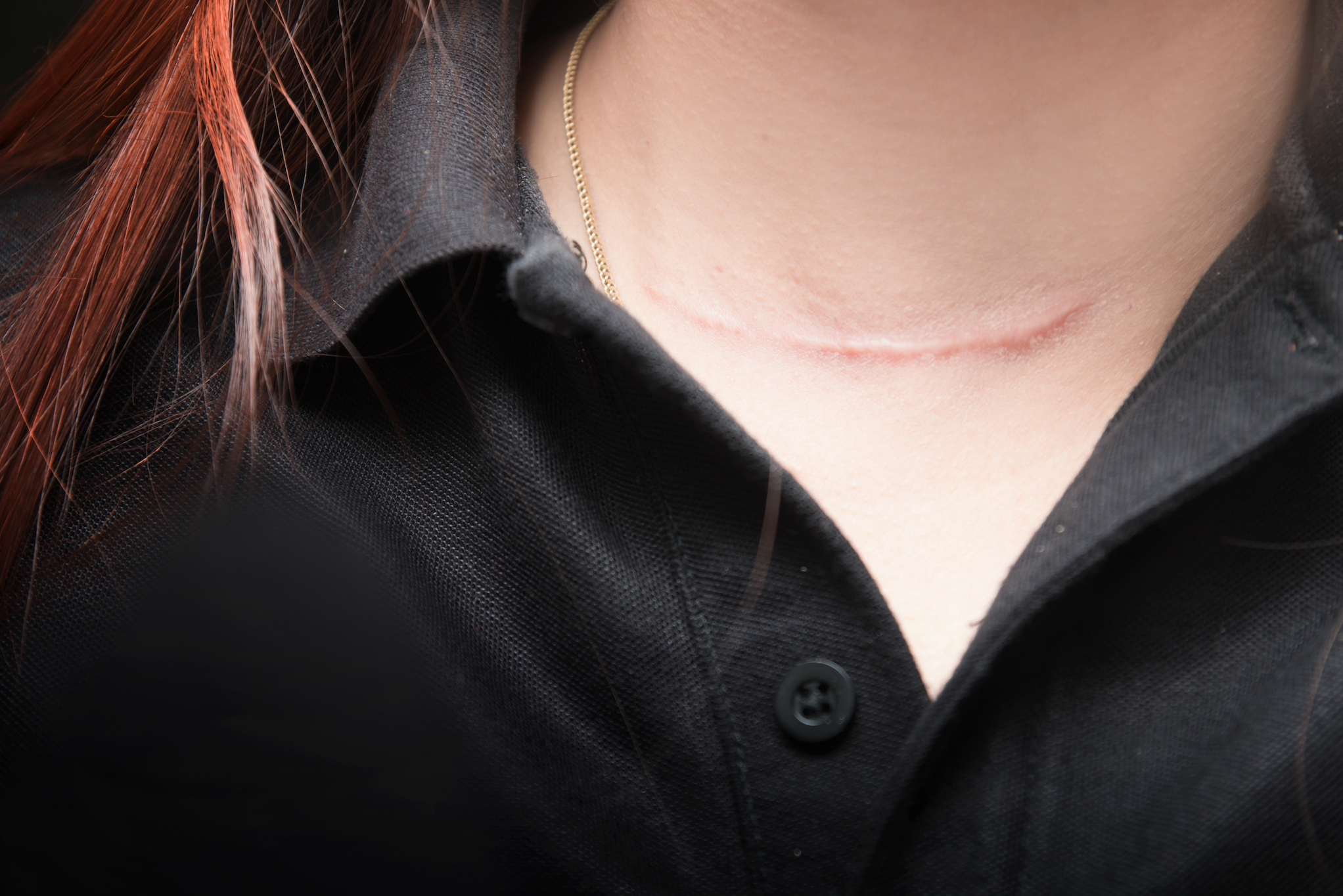If you have an overactive thyroid, thyroid cancer, or perhaps a benign growth that makes normal functions difficult, your doctor may recommend a complete or partial thyroidectomy (thyroid removal surgery). In this blog, we’ll talk about what to expect after thyroid surgery and cover a few common questions: is thyroid surgery a major surgery and how can I reduce my thyroid surgery scar?
Common Questions About What To Expect After Thyroid Surgery:
Let’s dive right in.
Is Thyroid Surgery A Major Surgery?
Absolutely. Removal of anything from the body is always a major surgery since it disrupts the area and the body must react internally. Even if your thyroidectomy is performed laparoscopically, you need to treat your body with respect and caution.
What Are The Side Effects Of A Thyroidectomy?
After your surgery, you will most likely have trouble swallowing and your voice may be hoarse or raspy. Some patients may find that their vitamin D and calcium levels are significantly altered; this will be monitored in the hospital during your stay and you may be asked to take supplements and have blood drawn several times.
Can I Talk After My Thyroidectomy?
Talking will likely be extremely uncomfortable, due to the fact that the thyroid and voicebox are right next to each other. You can talk after your surgery, just be careful to keep the volume low; you’ll probably not want to talk too much. Breathing deeply will also probably hurt, but patients should be careful not to avoid breathing deeply; this can help you avoid postoperative pneumonia.
What Does Thyroid Surgery Recovery Look Like?
As expected, patients with a partial thyroidectomy will be more likely to heal faster than patients with a complete thyroidectomy. In general, you should always follow your surgeon’s post-operative instructions first and foremost. Take the pain medication that is prescribed to you; this will help reduce the stress on your body and help you heal faster. If you find that certain pain medication isn’t working for you or is causing strange side effects, ask for a medication change immediately.
How Much Time Should I Take Off Work?
As with any invasive procedure, this is something you’ll need to discuss the specifics of with your doctor. In most cases, however, taking more than two weeks off from work is not necessary for making a full recovery. However, if you feel like you aren’t back to your normal self at the end of the two weeks, put your health first and stay home for a few more days.
Is There A Certain Way I Should Sleep?
The main concern is avoiding pressure and stretching in your incision area. Not only will it be uncomfortable, but it will also impact the long-term appearance of your scar. Lying on your side with your head and neck fully supported or propped up with your head at a comfortable angle are the best ways to sleep after a thyroidectomy.
How Long Will It Take For My Surgical Incision To Heal?
As with any incision, it can take up to six weeks for a surgical cut to completely scar over. However, you can start intervening with scar reduction techniques as soon as the wound closes completely. Your incision, since it will be small, will likely close up within just a few days of your surgery.
How Can I Reduce My Thyroid Surgery Scar?
Here at Rejuvaskin, we know how important it is to some people to be able to reduce their scars. This process is an emotionally healing one, as scars tend to remind us of rough times in our lives. Our scar heal kits were designed with surgical incisions in mind. For a thyroidectomy, you’ll need our smallest 3" Scar Heal Kit. The kit comes with both a silicone sheet for use at night and Rejuvasil scar gel for use during the daytime.





















Leave a comment